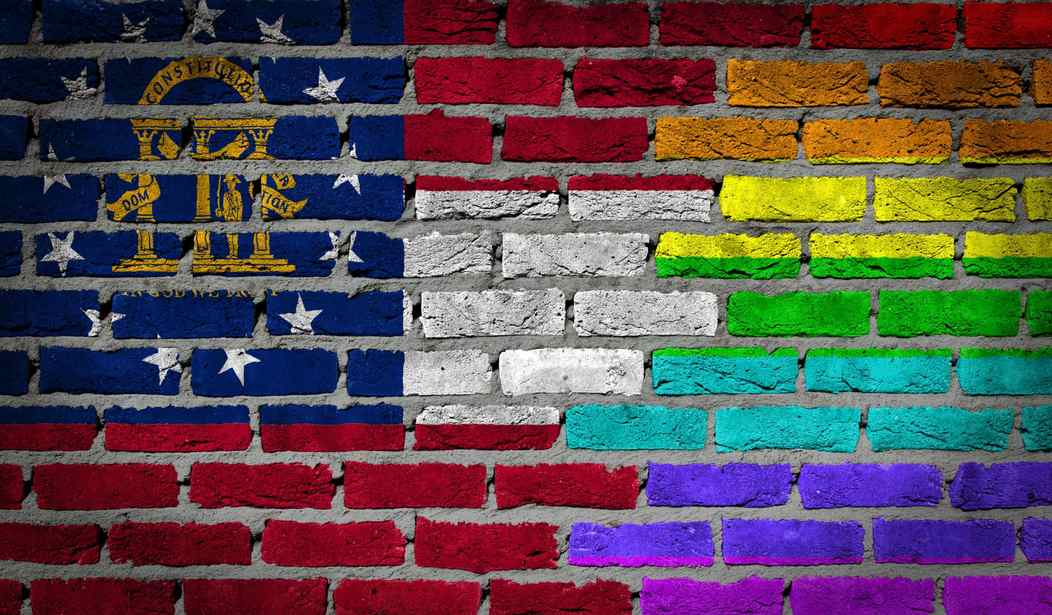Governor Nathan Deal has vetoed a controversial bill in Georgia that would protect churches and faith-based institutions from having to perform ceremonies or hire employees that do not line up with the organizations’ religious beliefs.
The Republican announced his decision during a news conference in his office at the Georgia Capitol, saying, “I have examined the protections that this bill proposes to provide to the faith-based community and I can find no examples of any of those circumstances occurring in our state.” Deal added, “I do not think that we have to discriminate against anyone to protect the faith-based community in Georgia.”
Deal made his decision facing pressure to veto House Bill 757, also known as the Free Exercise Protection Act, from corporations that do business in Georgia or have considered the state as a potential place to do business. Corporations and organizations like the NFL, Salesforce, and Disney urged Deal to abandon the legislation, wrongly believing that the act encouraged discrimination against the LGBT community. HB 757, however, did no such thing; in fact, the legislation contained language outlawing discrimination, language legislators wrote into the bill at Deal’s insistence.
The governor’s remarks reiterated his desire to avoid discrimination, yet they also revealed his incredulity at the necessity of the legislation:
I appreciate the efforts of the General Assembly to address these concerns and my actions today in no way disparage their motivations on those who support this bill, Their efforts to purge this bill of any possibility that it will allow or encourage discrimination illustrates how difficult it is to legislate on something that is best left to the broad protections of the First Amendment to the United State Constitution.
[…]
In light of our history, I find it ironic that today some in the religious community feel it necessary to ask the government to confer upon them certain rights and protections. If indeed our religious liberty is conferred by God and not by man-made government, we should heed the “hands-off” admonition of the First Amendment to our Constitution. When legislative bodies attempt to do otherwise, the inclusions and omissions in their statutes can lead to discrimination, even though it may be unintentional. That is too great a risk to take.
State House and Senate leaders did not share Deal’s concerns about the legislation.
House Speaker David Ralston said he respected Deal’s “thoughtful consideration” but said he doesn’t believe the bill permits discrimination. Lt. Gov. Casey Cagle said the bill struck the “right balance,” adding that the state should actively protect religious belief. He blamed “hyperbole and criticism” for the raging debate.
“I’ve always advocated for Georgia’s status as the number one state to do business, but as we move forward I will never lose sight of the importance of an individual’s right to practice their faith,” Cagle said.
Erick Erickson, one of the leading voices in support of religious liberty legislation in Georgia, weighed in:
The veto of HB757 means the Governor is going to see his remaining agenda hijacked and HB757 will probably next year be HB1. The issue will not only not go away, but if the Governor remains recalcitrant on the issue, it is going to become the biggest issue in the 2018 Republican gubernatorial primary.
What conservatives in Georgia are now seeing is that big businesses have the ear of Governor Deal in a way small businesses and churches do not. They are also seeing that no compromise can be had on the religious liberty issue. The evangelicals actually reduced the impact of HB757 by making it only apply to non-profit religious organizations and, at Governor Deal’s request, included specific language prohibiting invidious discrimination.
To have Governor Deal use rhetoric by opponents of religious liberty legislation — rhetoric that actually ignores key components of the legislation — was disappointing.
The ramifications of Deal’s veto remain to be seen—one legislator is already calling for an emergency special session to override the veto (which looks unlikely to happen)—but the governor has certainly disappointed a swath of his constituents. He cannot run for reelection in 2018, but if he chooses to run again in 2022, it’s unlikely that people of faith will forget what he has done.









Join the conversation as a VIP Member